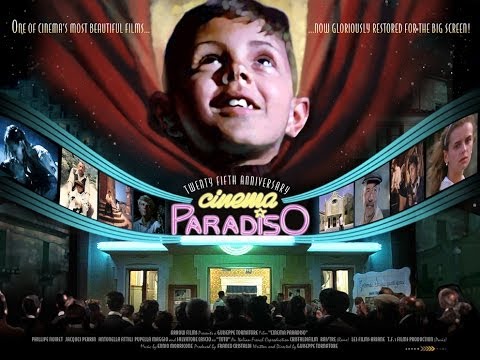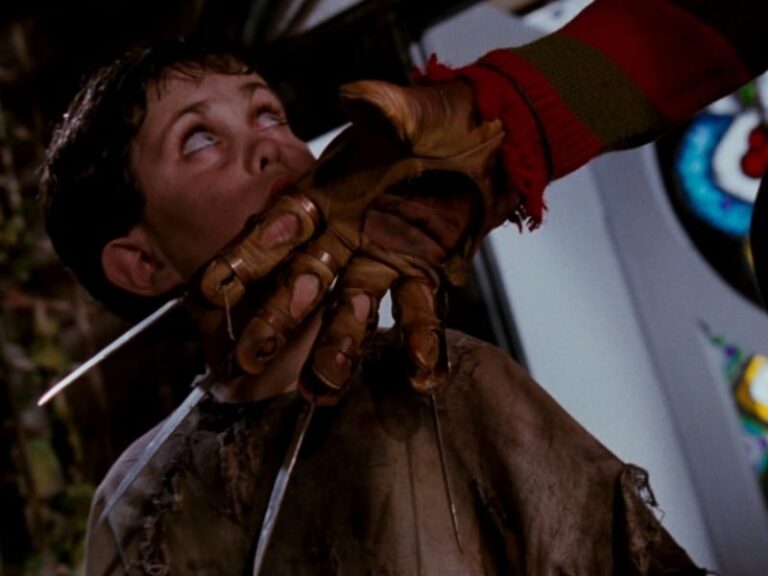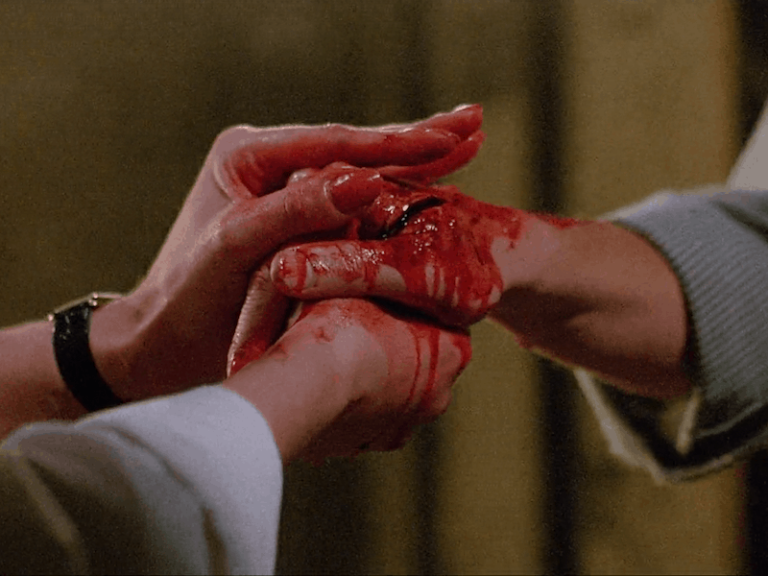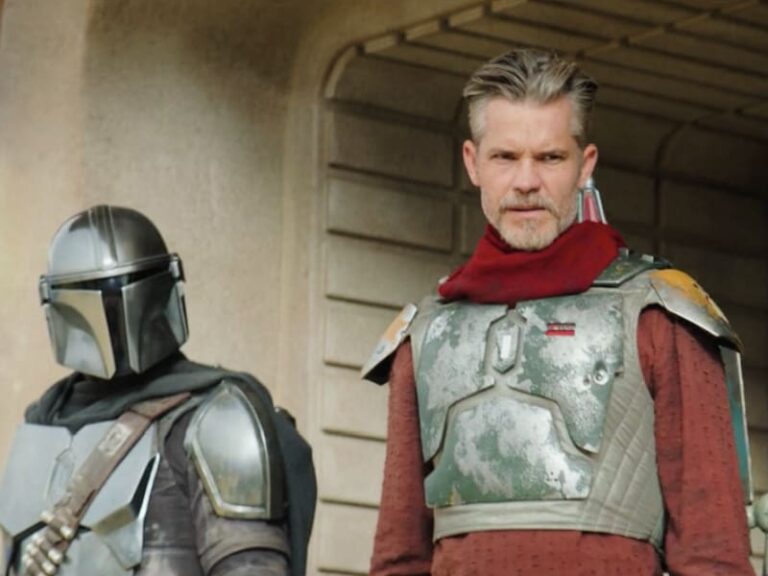THE QUEEN´S GAMBIT MINISERIES: A Striking But Unfulfilling Match
Sports at the center of a film or show have never really caught my attention. If you never have been in that specific athletic world, it’s quite hard to relate to the character’s drive to just win and become the best. It all comes off a bit shallow in my eyes, especially from a storytelling point of view. Hearing about Netflix’s show The Queen’s Gambit being about the game chess caught my attention. Chess as a “sport” never really gets the recognition it deserves, even though it is one of the oldest games, with a very undiscovered field of competitions. I have my own experiences with competitive chess, one of the few sports competitions I’ve actually been involved in, my sister was an avid chess competitor from the age of around 7-12. So, as her older not as talented sibling, I went with her and my dad many times to the chess competitions and was myself in the same chess club. At first getting the info that The Queen’s Gambit is supposed to be based on a real person made me question it because I remember me and my sister having good tabs on the few big female chess players, especially world champions. Seeing a lot of the raves about the show being about the stunning Anya-Taylor Joy (The Witch, Split) who is a film Twittersphere’s favorite, and with her cat-like appearance playing the addicted, red-haired Beth Harmon, caught my interest even more.
The show is based on the book The Queen’s Gambit (1983) written by Walter Tevis, and reimagined for the screen by Scott Frank and Alan Scott. In seven episodes we follow the orphan Beth Harmon, as she finds her way with being a competitive chess player while trying to find her place in the world when she is used to being alone. Except for the chess-playing, Beth gets close to her adoptive mother, whilst creating a complex relationship with older men who are mostly fellow competitors. In the orphanage, she doesn’t only get introduced to the checkerboard, but to sedative pills, which sparks an addiction that she feels is necessary for her winning in chess.
Spellbinding world of black and white
The chess-playing overall in the show is something that has garnered a lot of attention. Viewers, especially those not used to the game, have gotten interested in it and chess is something more “cool” for the world at the moment. For someone who understands the game and all the etiquette behind the competitions, it was a joy to have all these memories brought back to me while watching the show. It is very apparent that chess masters themselves (for example Garry Kasparov) have been consultants for the show, with how the show respects the game and its players in all seriousness. Of course, there are some parts of the game more adapted for the screen. Especially the games’ rhythm and how players talk to each other during matches, that would not stand in real life chess competitions. As a viewer, unknowing to the world of chess, Beth is a good character because she is so eager to learn and constantly asks questions that seem a bit obvious to other chess players. It is also nice to see this super-competitive world being shown in a very supportive light, how Beth overcomes her greatest competitor with help of her friends and how the first people she meets at a tournament stay with her. Because that is a lot what chess is about. You learn by your mistakes, you study your board and you find other ways to overcome obstacles.
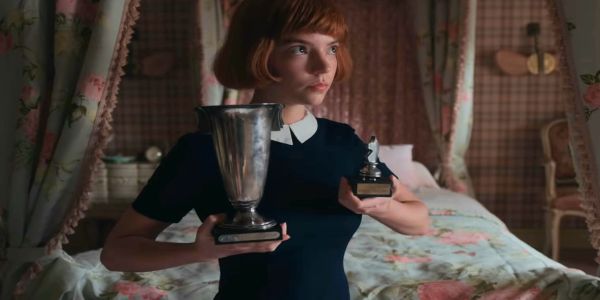
The timespan of the show is the 50’s and 60’s, and here is one of the things the show excels at: the look of it. It’s stunning with its costumes, set design and really puts you in the ’50-’60s USA during the cold war and the time of pinup housewives. Huge props to costume designer Gabriele Binder for Beth’s costumes having the checkered pattern incorporated into her outfits spanning over the years we follow her. The show also shows us different parts of the world when Beth starts competing more, not only in the US but in Mexico and later in the Soviet Union.
A typical American lens
This is where I think the show fails a little bit in afterthought, with how we get to see an American heroine in the lens of the Cold War conflicts. Beth is clear with how she doesn’t care about politics, but unwillingly at the end becomes some sort of symbol for American greatness in a way that made me cringe. It also shows the Russians in a very stereotypical light with them being uptight and robotic, and even though Beth actually learns Russian, the Russian players she meets all speak English to her. The way Mexicans are shown is also a bit stereotypical, with Beth being in Mexico City for quite a while, prancing around a pretty hotel while her adoptive mother meets a Mexican penpal who Beth thinks is “sleazy”, who later on seems to cause the death of the mother. It’s these small things that are for some discreet, and for others very not, because of the way the American lens shows other nationalities, especially those with political context behind them.
A queen with shallow backup
Something being rightfully praised is Anya Taylor Joy’s acting. She captures Beth’s complicated ways whilst being very stubborn and goal-oriented. But I think the story itself fails Beth as a character. It sets her up as this feminist heroine, but Beth is more annoyed than strengthened by the fact that she gets special treatment for being a woman. All her male relationships have something to do with the men being fascinated by this goal-oriented idea of her, and her using sexual desire as another form of stimulant similar to how she uses pills and alcohol.
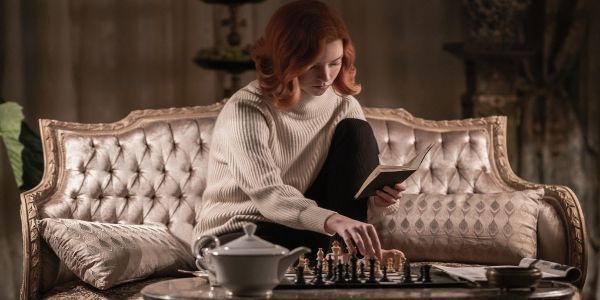
The relationships meaningful to Beth are the ones with the janitor Mr. Shaibel (Bill Camp), who shows her chess, Jolene (Moses Ingram) her first friend at the orphanage, her adoptive mother (Marielle Heller), and arguably Benny (Thomas Brodie-Sangster), another chess champion. Two of these relationships basically disappear in the middle of the show, to come back again in the form of Jolene coming with the news of the janitor’s death. Having heard the hype about Moses Ingram, the actress playing Jolene, I got really disappointed with how underutilized she was. Her character is one of the more interesting ones, and how different she and her goals are to Beth, and how important they are to each other as orphans. But this seems to only be important to show when Beth “the cracker white trash” as Jolene calls her, is at her lowest point and needs some motivation (and money), from the black girl Jolene. This doesn’t just only underutilize a promising actor but goes into an old trope about the black character’s only purpose being to uplift the white protagonist.
No rematches
During the whole span of the show, there’s a lot of lost opportunities that turn flat by vaguely hinting at things and then never really expanding on them. There are more than a handful of examples. Notable ones are the whole character of mysterious French Cleo, and the ”friend” Townes has in his Las Vegas hotel room, and the biggest one: Beth’s mother. The flashbacks throughout the whole show sets it up to let the viewer try to understand the chore of Beth’s troubles and addiction. A bit drastically in the last half of the last episode, her problems seem to have gone just because of her triumph in chess. And that’s a very weird way of showing addiction in my humble opinion. Especially with Beth turning to addiction so young and how hard it is to get away from it when you are older, The Queen’s Gambit almost glamorizes it in a way of showing how Beth’s brilliance conquers her addiction overall.
Final Thoughts
The Queen’s Gambit is stunning and exhilaratingly enjoyable, but it ultimately leaves me as a viewer just wanting more of it as a whole. Specifically, in the form of actual depth and not only flashy visuals and games of chess, considering chess is not what it’s all about. An expansion of the show feels at the same time unnecessary, and I wish they would have let Beth’s story actually get nuanced in the script and not only hint at it. Checkmate.
What do you think? Was chess something interesting for you before or did The Queen’s Gambit make you interested enough to pick up pieces and play? Let us know in the comments below!
The Queen’s Gambit is available on Netflix, released on October 23, 2020.
Watch The Queen’s Gambit
Does content like this matter to you?
Become a Member and support film journalism. Unlock access to all of Film Inquiry`s great articles. Join a community of like-minded readers who are passionate about cinema – get access to our private members Network, give back to independent filmmakers, and more.
Join now!

